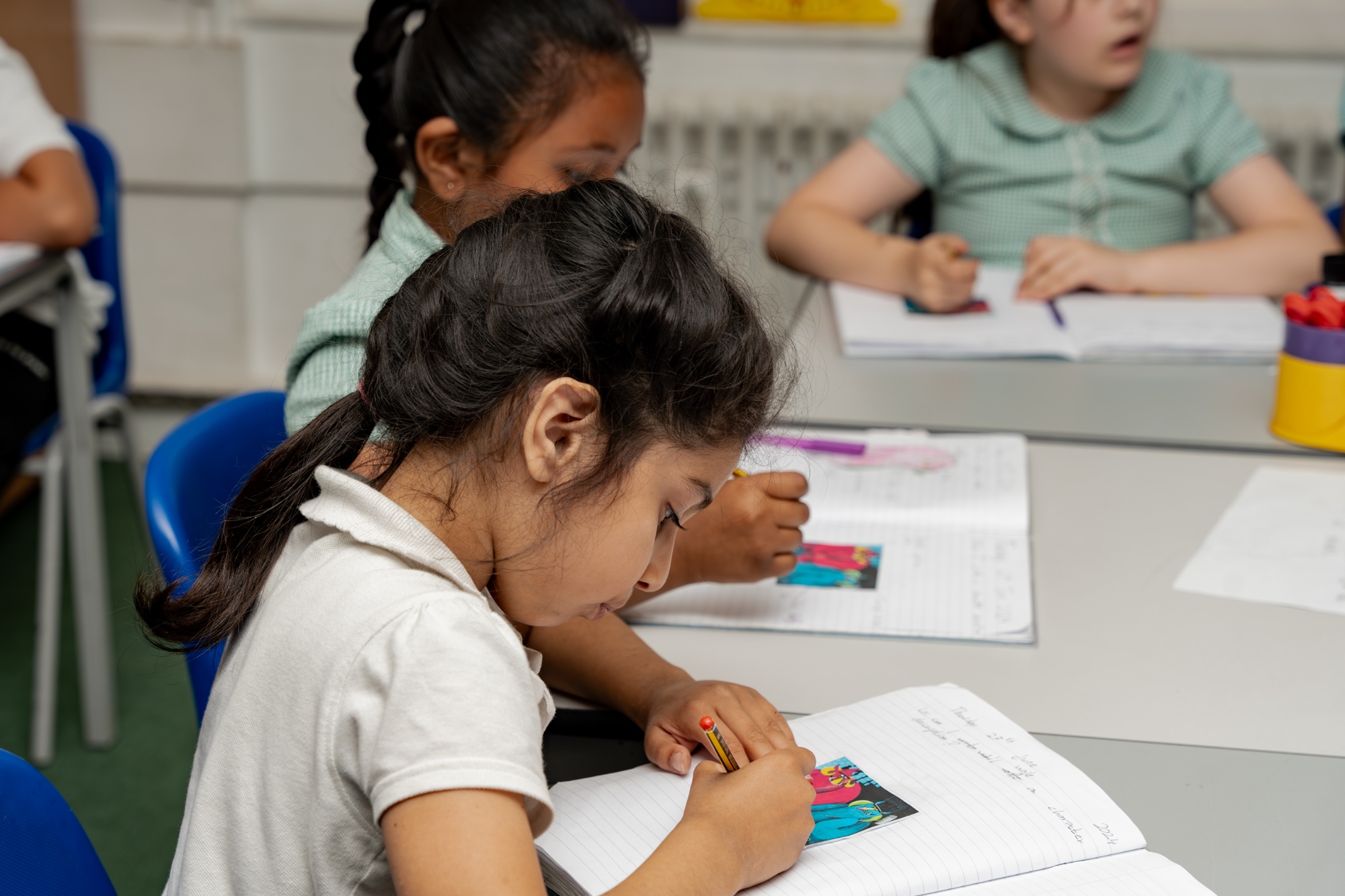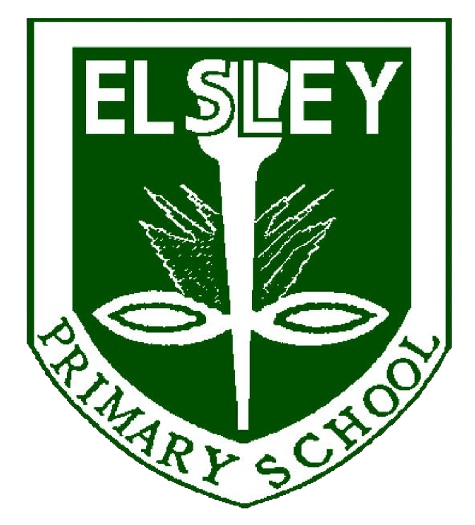English (Writing)
At Elsley Primary School, we believe that Writing is a powerful tool for communication, creativity, and self-expression. Our Writing curriculum helps students develop strong writing skills across various genres, from creative stories to factual reports. We encourage students to write with clarity, accuracy, and imagination, while also developing their grammar and vocabulary. We are proud of our approach to teaching Writing, which supports each child in finding their voice, expressing their ideas, and becoming confident, capable writers.
"Writing is the window to my imagination! I love making up stories and sharing them with everyone."
Intent Statement
At Elsley Primary School, we celebrate writing as a key to unlocking a pupil’s success in education, enhancing their performance across the curriculum, and providing a means for initiating and maintaining connections as members of our school and citizens of the wider world.
Our writing is stimulated by high-quality texts, inspired by Dr. Sims Bishop’s concept of books as ‘mirrors, windows and sliding glass doors.’ Books act as mirrors, enabling pupils to see themselves in a text; windows which offer an insight into the world of others; and sliding glass doors to enter alternative realities. Inspired and guided by the written word, pupils learn about the lives of those whose experiences and perspectives differ from their own, to develop emotionally, culturally, morally and intellectually. We provide pupils with a breadth of writing experiences, through texts which go beyond the single story and celebrate diversity, whilst encompassing a broad and balanced spectrum of human experiences.
We aim for pupils to speak and write fluently so that they can communicate, to an audience, the spectrum of human emotion and intent. Our pupils are encouraged to use the written word to help make meaning of their lives. Our staff are encouraged to develop a deeper and personalised understanding of the writing process in order to nurture and promote a classroom of writers. At Elsley, our vision is for practitioners to inspire pupils to become authentic and effective writers who will retain a lifelong love of literacy.
Implementation Statement
At Elsley, we recognise the cognitive dimensions of learning to write. Becoming proficient in writing requires careful, deliberate and systematic planning and teaching and, in order to be successful, we nurture our pupils’ creativity and enthuse, inspire and empower them so that they develop a writer’s voice.
Our school has carefully orchestrated a writing curriculum which clearly details the principles, pedagogy and coverage for teaching writing, to ensure progression within and across year groups, from Nursery to Year 6: writing purposes, experiences and skills. We support our pupils’ journey to proficiency by using a whole-school sequence to teach writing, ensuring consistency of approach, and employing strategies that facilitate a systematic building of writing skills. We seek to place the learner at the heart of the planning and teaching, so that they feel confident in the writing craft and proud of their finished products.
Elsley’s whole-school teaching sequence
- Immersion in the text
Using a cleverly crafted hook, practitioners immerse pupils in a text to capture their imagination and provide an authentic purpose and audience for their writing. Hooks act as a gateway into a pupil’s imagination, whilst providing a purposeful context for writing and supporting pupils in forging connections between existing knowledge and future learning.
- Analysis of the text
After analysing a model example of the writing outcome, pupils co-construct success criteria, alongside the practitioner, to encode a sense of purpose relating to their development as authentic writers. Pupils develop a toolkit of ingredients recognising that the success of their writing is measured by how well it achieves its purpose for the intended reader.
- Explicit grammar instruction
Key grammatical skills identified in the toolkit are explored to support the final outcome and then woven into the writing process.
- Planning
Understanding that planning is a critical aspect of learning to write, we utilise a consistent approach across the school to encourage independence. Pupils draw upon the underlying structure and language from a model text to create something new. Writing is developed in an active, dynamic and social manner, using talk to initiate and refine ideas. Through speaking, listening and drama activities, pupils learn to modify their ideas according to the audience for whom they are writing.
- Modelled and shared writing
Utilising their plans, pupils collaborate with practitioners to produce a shared piece of writing. Practitioners involve pupils in the composition, taking suggestions and modelling how to refine ideas. Challenge and creativity permeate through shared- and modelled- writes, ensuring that pupils are engaged and learning to a high standard. Modelling provides a window to the mind, a forum for pupils to see practitioners as experts in sentence construction, exemplifying the internal process of the writing craft.
- Independent writing
Pupils use the knowledge they have gained to write their first draft, having the opportunity for sustained writing periods.
- Proofreading, editing and redrafting
Appreciating writing as an interactive process, pupils are guided through the editing and redrafting phase to develop the skillset to improve their work with the audience in mind. We encourage pupils to discuss and refine their ideas collaboratively which builds their confidence and opens the door to more creativity.
- Publishing
Following this evaluation and refinement, pupils write their innovated pieces independently, a section at a time, applying the toolkit and what they have seen modelled in shared writing. Published work is celebrated and shared with the intended audience.
Impact Statement
At Elsley, we adopt a collaborative approach to assessment, working alongside pupils in the classroom and practitioners across the school. Assessment forms an integral element of the teaching and learning sequence. Pupils are provided with next steps during the writing process, which takes the form of verbal communication, written feedback and a whole-class approach to editing and redrafting. At the end of each writing outcome, practitioners collaborate as a year group to carry out in-depth assessments of pupils’ writing, highlighting the age-related outcomes that have been achieved and formulating a gap analysis in order to further refine teaching and learning. Following this, cross-phase moderation takes place in conjunction with experienced practitioners, who are externally trained moderators for the local authority. This supports the whole-school writing moderation sessions, as well as interschool sessions, which further promote high-standards in writing.
With the implementation of a consistent and systematic writing sequence, pupils become confident writers, acquiring the knowledge and skills needed to write effectively for a range of purposes and audiences. By the time pupils leave Year 6, they will have been exposed to a breadth of writing experiences, developing a writer’s craft and an insight into the manipulation of language, grammar and punctuation for effect. Most importantly, pupils will have developed a passion and flare for writing which they will take with them as they progress in their education and beyond.


